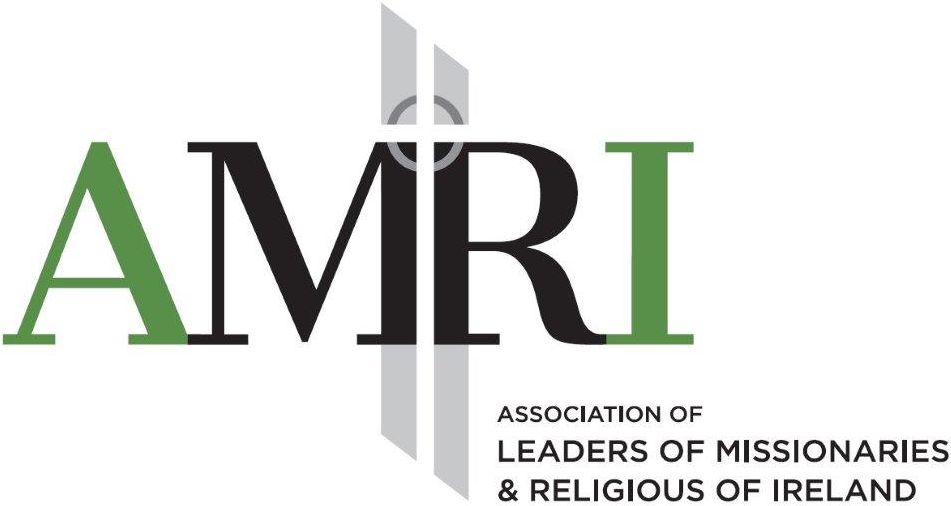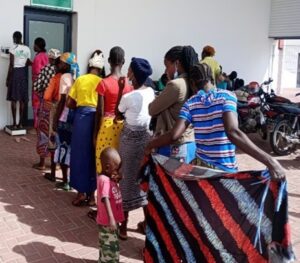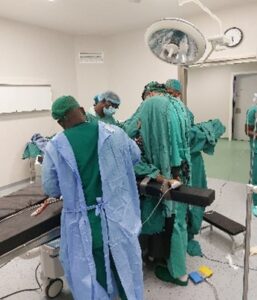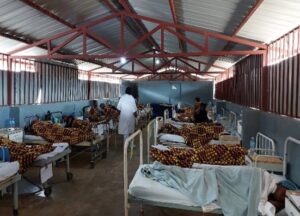Women are not a statistic – International Women’s Day 2024
Friday March 8 is International Women’s Day.
The first ever international women’s day was observed on the 19th of March 1911. That’s over a century ago. Then in 1975 the United Nations officially marked the 8th of March as International Women’s Day, a day to focus on the continuing inequality and exclusion of women and girls in various spheres across our global society. These include realities of continuing violence and political, social and economic exclusion and/or suppression of women. In 2015 the UN Sustainable Development Goals (which replaced the Millennium Development Goals) were agreed with 17 Goals and 169 targets under the 2030 Agenda for Sustainable Development. With 6 years left to go to achieve these Goals, the world is just ‘15% on track’. While all of the Goals are interconnected, if we look specifically at Goal 3, Good health and well-being, which includes maternal health, and Goal 5 Gender equality, the best-case scenario by 2030 is “fair progress”, whatever this might mean.
Recently, along with Spiritan Edward Flynn and Eirene Carson, a midwife working in England, we visited Angola in southwest Africa to explore maternal health as it relates to obstetric fistula – an injury caused from a prolonged or obstructed labour that results in an abnormal opening between a woman’s birth canal and her urinary tract and/or rectum. This can be a life-long injury unless a woman has access to fistula repair surgery. Some women are living with fistula for more than 40 years. For many years, Irish religious sisters have pioneered fistula repair surgery in various countries across the world, such as Sr Drs Anne Ward in Nigeria and Maura Lynch in Uganda, both Medical Missionaries of Mary; or Franciscan Missionary of Africa Sr Dr Miriam Duggan also in Uganda, and Sr Dr Eileen Keane of the Missionary Sisters of the Holy Rosary in Zambia, to name just a few.
In Angola, some 20,000 women are living with obstetric fistula. Some 1,500 more annually are added to this statistic. But these women are not a statistic. They are women. Each one with their own story to tell. Each has a right to her life as do her children and her unborn child. Yet, with limited access to quality maternal care, often her baby does not survive the birth process. The mother can be left with an obstetric fistula that results in a constant leaking of urine and/or faeces. She is now faced with social exclusion, stigmatised and ostracised from her family and community. This also results in economic isolation as her options to participate in livelihood activities are hampered, making her more vulnerable to poverty. Added to the discomfort of her injury and the loss of her child, she is now psychologically traumatised from her exclusion.
During the visit to Angola, we witnessed a fistula repair campaign, where doctors and nurses from around the country gathered at the Walter Strangway Hospital in Cuito, Bié province to carry out as many repairs as possible in 7 days. Such a camp takes place a few times a year, depending on the availability of doctors, nurses, hospital space to perform the surgery and funding. At this camp, 99 women were registered for the surgery and 83 surgeries were able to take place. Four doctors, led by chief surgeon Dr Paulo Parimbelli, performed the procedure. It takes at least 3-4 weeks of recuperation before we know if the surgery has been successful. Not all surgeries are. One woman we met was awaiting her 10th surgery. Repairing obstetric fistula is not on the curriculum for medical students in the developed world, where the injury is nearly eradicated. Nor is it covered in countries where obstetric fistula is prevalent. Given that there are so few doctors in Angola and even fewer qualified to perform fistula repair surgeries, women’s safe maternal health is a challenging priority.
But there are signs of hope. In Angola, Dr Paolo trains medical personnel while performing fistula repair surgeries as do qualified surgeons at the Centro Evangélico de Medicina do Lubango (CEML) in Lubango, some 600 kms from Cuito. Individual repairs take place at the Evangelical Mission hospital in Caluquembe, a 10-hour drive from Cuito. Local NGO Votoka meaning ‘rise up’, are active on the ground in educating and raising awareness of the prevention of obstetric fistula within the nurses training college in Cuito and in mobilising local ‘fistula ambassadors’ within rural communities. The World Council of Churches at local and international level are advocating for wider consideration of the human rights and human dignity of the women and there is renewed interest for support from the Catholic Archdiocesan structures in Huambo and Luanda.
During this International Women’s Day, consider the women in Angola who are living with obstetric fistula and the 1,500 more women this year who will experience the injury and the trauma. Be aware of the continuing injustices experienced by women across the world. Support organisations striving to restore the dignity and rights of women and girls.
To learn more see:
Fistula Foundation: https://fistulafoundation.org/
Freedom from Fistula: https://www.freedomfromfistula.org.uk/
Hope for our sisters: https://hopeforoursisters.org/donate-online/
UN Sustainable Development Goals: https://sdgs.un.org/goals





